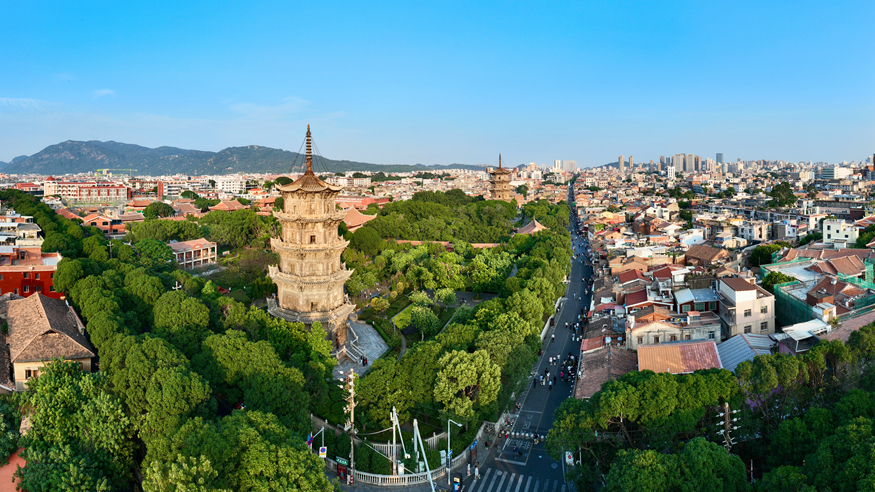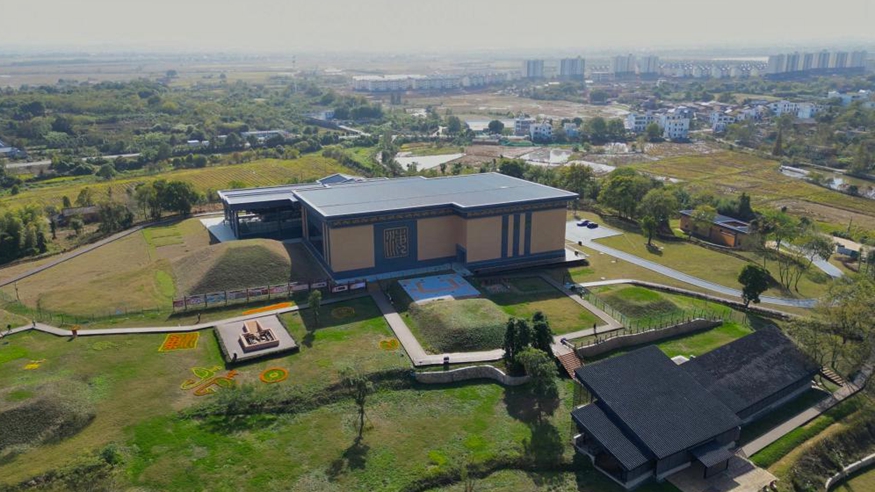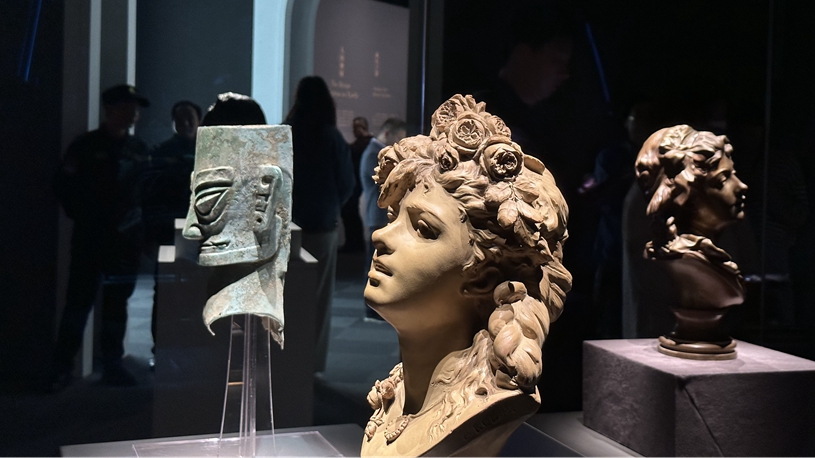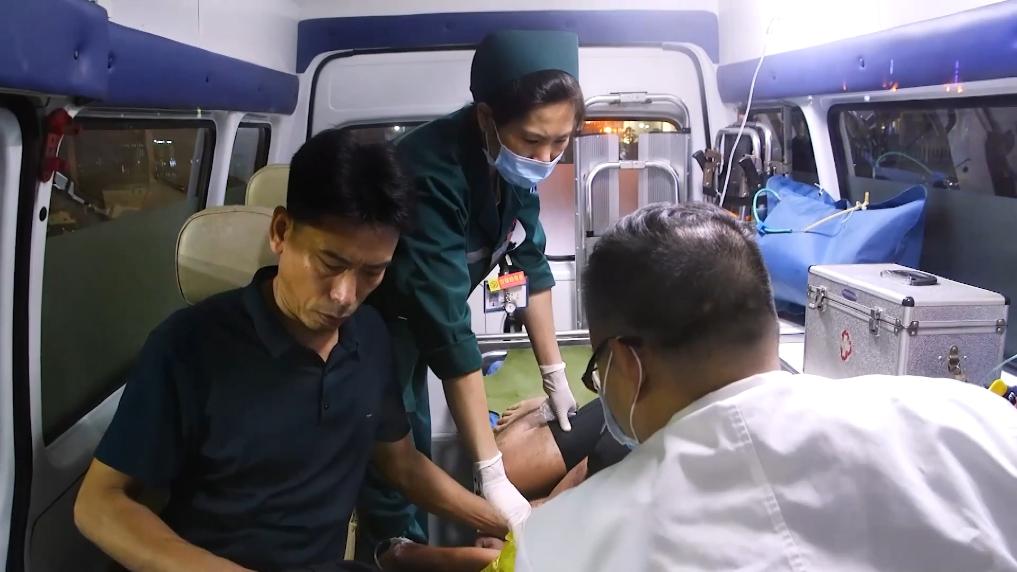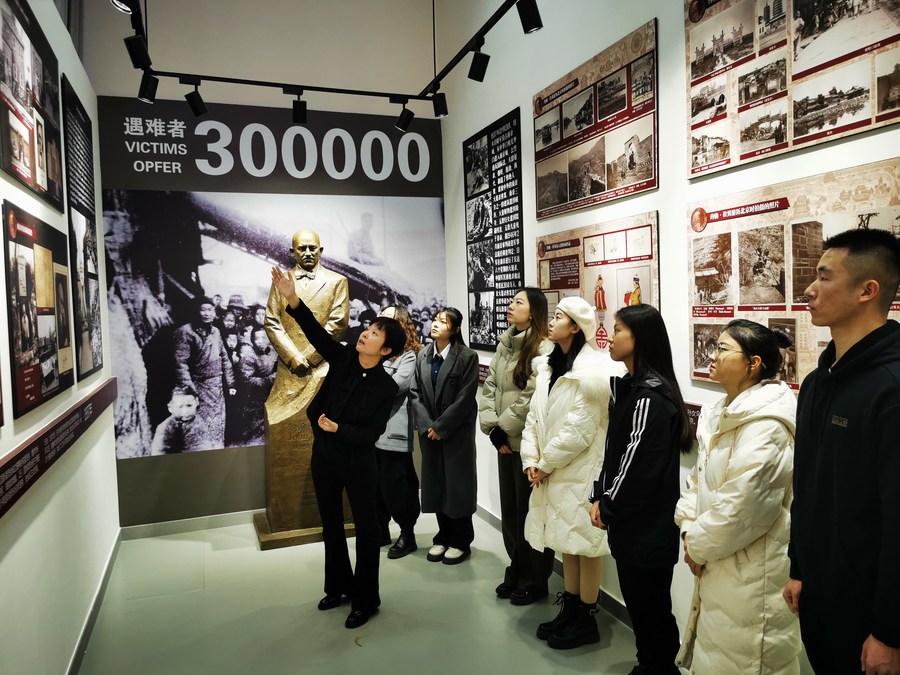
Li Yu (1st L), deputy director of the John Rabe Communication Center Beijing/PRC, introduces John Rabe's story to students at Beijing Union University in Beijing, capital of China, Dec. 9, 2023. (Xinhua/Tai Sicong)
BEIJING, Dec. 16 (Xinhua) -- Walking through the aisles of the Beijing Union University library, one would encounter an exchange center dedicated to the memory of an international friend, John Rabe.
This Wednesday marked the 10th national memorial day for the victims of the Nanjing Massacre. Students from the School of Marxism at the university recently gathered in this center for a special lesson.
In 1937, when Japanese invaders launched the horrific massacre in Nanjing of east China's Jiangsu Province, Rabe and a group of international friends established an international safety zone and protected 250,000 Chinese people, said Li Yu, deputy director of the John Rabe Communication Centre Beijing/PRC.
Beyond his well-documented deeds in Nanjing, Rabe's indissoluble bond with Beijing unfolded through the narratives shared by Li.
Rabe's connection with China traces back to 1908, when he first set foot in Beijing.
Rabe lived in Beijing for 17 of his 30 years in China, Li said. The Diaries of John Rabe dedicates five volumes to his experiences in Beijing. Besides, Rabe also took a large number of photos and collected a painted rendition of Beijing's folk map and numerous vintage images of ancient structures.
These diaries and pictures are an invaluable reference for the study of modern Beijing, Li said.
Exploring the culinary delights and traditional Chinese medicine, and through communication with the Chinese people, Rabe developed a preliminary understanding of this land and the people living here.
He was even more impressed by the kindness of the Chinese people when he returned to Beijing in 1921, discovering that his residence had been kept clean and his property kept safe by his Chinese friends during his absence after World War I.
The 17 years of residing in Beijing also witnessed several important occasions in Rabe's life -- his wedding and the birth of his children. The emotional bond between his family and the city has deepened his affection for this ancient country and its people, and prompted him to stand up when the Chinese people were persecuted by the Japanese invaders.
Through the teacher's narratives, the students learned more about the lesser-known facets of this international friend.
"Listening to and empathizing with Rabe's story makes me truly understand what internationalism is," said Jiao Yuanzhe, a graduate student at the School of Marxism.
Though John Rabe has passed away, the enduring friendship between the Rabe family and the Chinese people persists. His stories are told across China, and his descendants continue to engage with the country, sustaining a friendship spanning a century.
In March 2020, amid the COVID-19 pandemic, Professor Thomas Rabe, John Rabe's grandson, was worried about the severe shortage of medical supplies in the hospital where he worked in Heidelberg, Germany. Turning to the Chinese Embassy in Germany and Chinese friends, he received significant aid in the form of 30,000 masks, 200 sets of protective clothing, and medicine from China.
Experiencing the same warmth and friendliness that his grandfather felt, Thomas Rabe has also strengthened exchanges with China. As a visiting professor at Beijing Obstetrics and Gynecology Hospital, Capital Medical University, he has shared his over 40 years of expertise in gynecological endocrinology and reproductive medicine, and research results with China.
Now, a visit to the John Rabe Communication Centre Beijing/PRC is a pivotal part of the orientation education for new students at Beijing Union University.
According to Li Yu, the virtues of "fraternity, responsibility, and courage" exemplified by John Rabe have left an indelible mark in the shared cultural memory of both the Chinese and German people. ■

